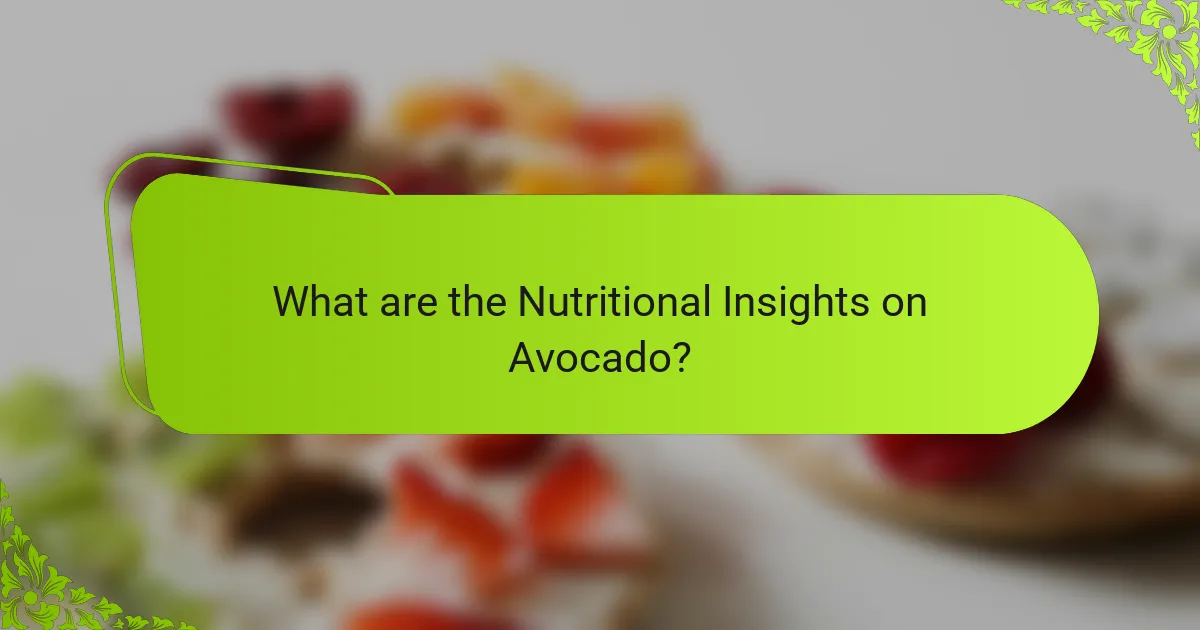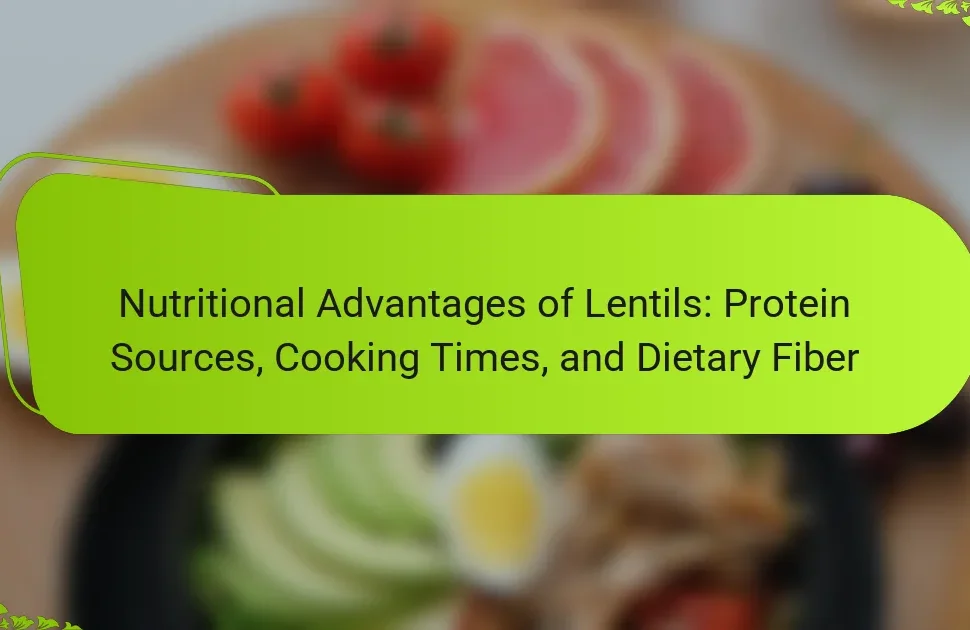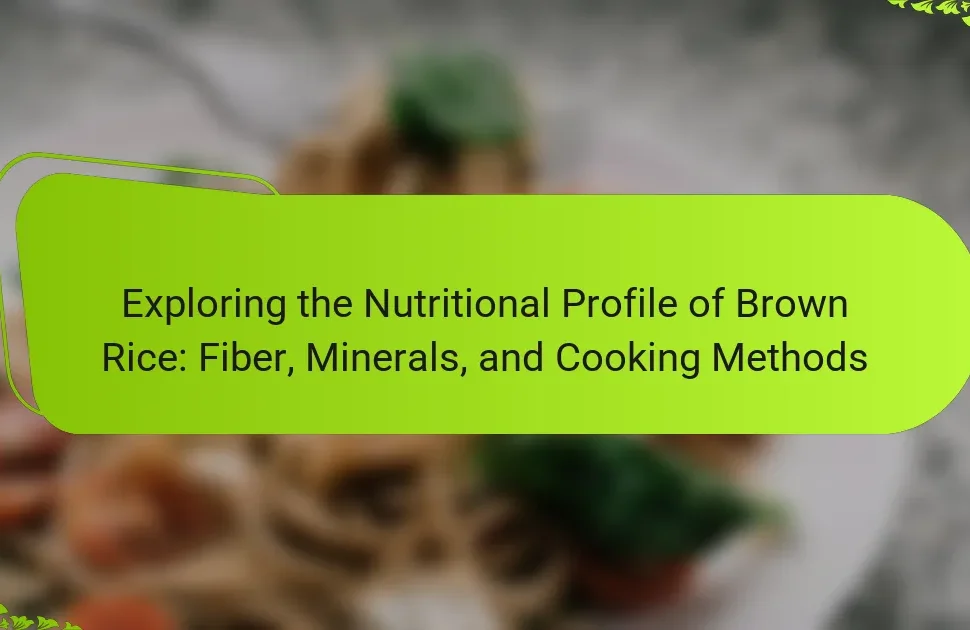
What are the Nutritional Insights on Avocado?
Avocado is a nutrient-dense fruit known for its healthy fats. It contains approximately 15 grams of fat per 100 grams, primarily monounsaturated fat. This type of fat is beneficial for heart health. Avocado also provides about 160 calories per 100 grams. It is rich in vitamins, including vitamin K, vitamin E, and several B vitamins. Additionally, it contains important minerals such as potassium and magnesium. A single avocado can provide over 20% of the daily recommended intake of fiber, promoting digestive health. These nutritional insights make avocado a valuable addition to a balanced diet.
How do healthy fats in avocados contribute to overall nutrition?
Healthy fats in avocados contribute significantly to overall nutrition by providing essential fatty acids and promoting heart health. These fats include monounsaturated fats, which can lower bad cholesterol levels. Research indicates that consuming avocados can improve cardiovascular risk factors. A study published in the Journal of the American Heart Association found that a diet rich in monounsaturated fats can reduce the risk of heart disease. Additionally, avocados are nutrient-dense, containing vitamins E, K, and B6, which support overall health. They also enhance the absorption of fat-soluble vitamins from other foods.
What types of healthy fats are found in avocados?
Avocados contain monounsaturated fats and polyunsaturated fats. Monounsaturated fats are the primary type, making up about 70% of the fat content. These fats are known to support heart health by lowering bad cholesterol levels. Polyunsaturated fats, including omega-3 and omega-6 fatty acids, are also present in smaller amounts. These fats contribute to overall health and are essential for various bodily functions. Studies show that incorporating avocados into the diet can improve lipid profiles and reduce the risk of cardiovascular diseases.
Why are these fats considered beneficial for health?
These fats are considered beneficial for health due to their composition of monounsaturated fats. Monounsaturated fats help reduce bad cholesterol levels in the blood. This reduction lowers the risk of heart disease and stroke. Additionally, these fats provide essential fatty acids that the body cannot produce itself. They support cell structure and hormone production. Studies indicate that diets rich in monounsaturated fats can improve insulin sensitivity. This improvement is crucial for managing blood sugar levels. Avocados, a primary source of these fats, also contain vitamins and antioxidants. These nutrients contribute to overall health and well-being.
What is the caloric content of avocados?
Avocados contain approximately 160 calories per 100 grams. This caloric content primarily comes from healthy fats. Specifically, about 77% of the calories in avocados are derived from fat. The predominant type of fat in avocados is monounsaturated fat. This type of fat is known to be heart-healthy. Additionally, avocados provide fiber and various vitamins. Their nutrient density makes them a popular choice in healthy diets.
How does the caloric content compare to other fruits?
Avocado has a higher caloric content compared to many other fruits. A typical avocado contains approximately 160 calories per 100 grams. In contrast, most fruits like apples and oranges contain around 52 and 47 calories per 100 grams, respectively. Bananas hold about 89 calories per 100 grams. These comparisons highlight avocados’ unique position as a calorie-dense fruit. The higher caloric content is primarily due to their healthy fat content, predominantly monounsaturated fats. This makes avocados a nutrient-rich option, providing more energy than most fruits while also offering beneficial fats.
What factors influence the caloric value of avocados?
The caloric value of avocados is influenced by their fat content, size, and ripeness. Avocados are high in healthy fats, primarily monounsaturated fats, which contribute significantly to their calorie density. The larger the avocado, the more calories it typically contains. Additionally, the ripeness of the fruit affects its caloric value, as riper avocados tend to have a higher fat content. Studies show that a medium avocado contains approximately 240 calories, with variations depending on these factors.

What are the health benefits of consuming avocados?
Consuming avocados offers numerous health benefits. They are rich in monounsaturated fats, which support heart health by reducing bad cholesterol levels. Avocados contain high levels of fiber, aiding in digestion and promoting satiety. They are also packed with vitamins, including K, E, C, and various B vitamins, which contribute to overall health. Additionally, avocados are a source of potassium, which helps regulate blood pressure. Studies show that including avocados in your diet can enhance nutrient absorption from other foods. Their antioxidant properties may protect against oxidative stress and inflammation. Research published in the Journal of the American Heart Association highlights the positive effects of avocados on cardiovascular health.
How can avocados impact heart health?
Avocados can positively impact heart health by lowering bad cholesterol levels. They are rich in monounsaturated fats, which help reduce LDL cholesterol. This reduction lowers the risk of heart disease. A study published in the Journal of the American Heart Association found that avocado consumption is associated with lower levels of total cholesterol and triglycerides. Additionally, avocados contain potassium, which supports healthy blood pressure levels. The fiber in avocados also contributes to heart health by improving cholesterol levels and promoting a healthy weight.
What studies support the heart health benefits of avocados?
Several studies support the heart health benefits of avocados. One significant study published in the Journal of the American Heart Association found that including avocados in a heart-healthy diet improved cholesterol levels. The research indicated that participants who consumed one avocado daily had lower LDL cholesterol levels. Another study in the journal Nutrients showed that avocados are rich in monounsaturated fats, which are beneficial for heart health. Additionally, a meta-analysis in the American Journal of Clinical Nutrition confirmed the positive effects of avocado consumption on cardiovascular risk factors. These studies collectively highlight avocados’ role in promoting heart health through improved lipid profiles and beneficial fat content.
How do avocados affect cholesterol levels?
Avocados can positively affect cholesterol levels by lowering LDL cholesterol and increasing HDL cholesterol. They contain monounsaturated fats, which are heart-healthy. Studies show that including avocados in the diet can lead to a reduction in total cholesterol levels. Research published in the Journal of the American Heart Association found that participants who consumed avocados regularly experienced significant improvements in cholesterol profiles. Specifically, LDL cholesterol dropped by about 13.5 mg/dL. Additionally, HDL cholesterol increased by an average of 5.5 mg/dL after avocado consumption. This indicates that avocados can be a beneficial addition to a heart-healthy diet.
What role do avocados play in weight management?
Avocados play a significant role in weight management due to their high fiber and healthy fat content. They contain approximately 7 grams of fiber per fruit. This fiber promotes satiety, helping individuals feel full longer. Avocados are rich in monounsaturated fats, which can aid in reducing body fat. Studies indicate that including avocados in meals can lead to lower calorie intake throughout the day. One study published in the Journal of Nutrition found that participants who consumed avocados felt more satisfied and ate fewer calories later. Thus, avocados can be a beneficial addition to a weight management plan.
How can avocados be incorporated into a weight loss diet?
Avocados can be incorporated into a weight loss diet by using them as a healthy fat source. They provide monounsaturated fats that promote satiety. Adding avocado to salads enhances flavor and nutritional value. Using avocado as a spread instead of butter or mayonnaise reduces calorie intake. Incorporating avocado into smoothies adds creaminess without excessive calories. A study published in the Journal of the American Heart Association found that avocados can help reduce body weight and waist circumference. This shows their effectiveness in a weight loss plan.
What is the satiety factor of avocados?
The satiety factor of avocados is high. Avocados are rich in healthy fats, particularly monounsaturated fats. These fats contribute to feelings of fullness. Additionally, avocados contain dietary fiber, which also enhances satiety. One medium avocado has about 10 grams of fiber. Studies show that high-fiber foods increase satiety levels. This helps reduce overall calorie intake. Therefore, incorporating avocados into meals can aid in weight management.

What are some creative recipe ideas using avocados?
Avocados can be used in various creative recipes. One idea is avocado toast, topped with poached eggs and cherry tomatoes. Another option is guacamole, made with lime, cilantro, and diced onions. Avocado smoothies combine avocados with spinach, banana, and almond milk for a nutritious drink. Stuffed avocados can be filled with tuna salad or quinoa. Additionally, avocado chocolate mousse uses ripe avocados blended with cocoa powder and sweetener for a healthy dessert. Each recipe showcases the versatility of avocados in both savory and sweet dishes.
How can avocados be used in salads and appetizers?
Avocados can be used in salads and appetizers by adding creaminess and healthy fats. They can be diced and mixed into green salads for added texture. Sliced avocados can serve as a topping for various appetizers like bruschetta. Guacamole, made from mashed avocados, is a popular dip for chips and vegetables. Avocados can also be blended into dressings for a smooth consistency. Their mild flavor complements other ingredients well. Nutritionally, avocados are rich in monounsaturated fats and provide essential vitamins. They enhance the overall health benefits of meals when included.
What are some popular avocado salad recipes?
Popular avocado salad recipes include avocado and tomato salad, avocado cucumber salad, and avocado quinoa salad. The avocado and tomato salad combines diced avocados with ripe tomatoes, red onion, lime juice, and cilantro. This dish highlights the creamy texture of the avocado and the freshness of the tomatoes.
Avocado cucumber salad incorporates sliced cucumbers, diced avocados, and a light dressing of olive oil and vinegar. This salad is refreshing and ideal for hot weather.
Avocado quinoa salad features cooked quinoa mixed with diced avocado, black beans, corn, and a lime vinaigrette. This recipe is nutritious and filling, showcasing the versatility of avocados in salads.
How can avocados enhance appetizer presentations?
Avocados can enhance appetizer presentations by adding vibrant color and creamy texture. Their rich green hue creates visual appeal, making dishes more enticing. The creamy consistency of avocados complements various flavors and textures in appetizers. They can be sliced, diced, or pureed to create diverse presentations. Additionally, avocados are versatile and pair well with ingredients like tomatoes, citrus, and spices. This versatility allows for creative combinations that elevate the overall dining experience. Their nutritional profile also adds health benefits, making appetizers not only attractive but also nutritious.
What are some unique ways to incorporate avocados into main dishes?
Avocados can be uniquely incorporated into main dishes by using them in various ways. One method is to create avocado-based sauces, such as avocado pesto, to enhance pasta dishes. Another option is to stuff avocados with ingredients like quinoa, black beans, and spices for a nutritious meal. Grilled avocados can serve as a delicious side or main dish when topped with a protein like shrimp or chicken. Additionally, avocado can be blended into soups, providing a creamy texture and rich flavor. Using avocado as a topping for pizzas or flatbreads offers a fresh alternative to traditional ingredients. Lastly, incorporating avocados into grain bowls adds healthy fats and creaminess, making the dish more satisfying. These methods highlight the versatility of avocados in various culinary applications.
How can avocados be used in sandwiches and wraps?
Avocados can be used in sandwiches and wraps as a creamy, nutritious spread. They enhance flavor and add healthy fats. Sliced avocados provide a fresh texture in both sandwiches and wraps. Mashed avocado can serve as a base for various toppings. Pairing avocados with vegetables and proteins creates a balanced meal. They also contribute to a satisfying mouthfeel without added calories. Research indicates that avocados are rich in monounsaturated fats, which are beneficial for heart health. Their versatility makes them a popular choice in various cuisines.
What are some innovative avocado-based main course recipes?
Avocado-based main course recipes include avocado pasta, avocado stuffed chicken, and avocado tacos. Avocado pasta features a creamy avocado sauce blended with garlic and lemon. This dish offers healthy fats and a unique flavor profile. Avocado stuffed chicken involves filling chicken breasts with mashed avocado, cheese, and spices. This recipe provides a satisfying and nutritious meal. Avocado tacos use tortillas filled with smashed avocado, beans, and fresh vegetables. They serve as a delicious and plant-based alternative to traditional tacos. These recipes highlight the versatility of avocado in main dishes.
What tips can help maximize the nutritional benefits of avocados?
To maximize the nutritional benefits of avocados, consume them with healthy fats. Healthy fats enhance the absorption of fat-soluble vitamins like A, D, E, and K. Pairing avocados with foods like olive oil or nuts can increase nutrient uptake. Additionally, choose ripe avocados for optimal nutrient content. Ripe avocados have higher levels of monounsaturated fats and antioxidants. Incorporating avocados into salads or smoothies can boost overall nutrient density. Avoid overcooking avocados, as heat can diminish their nutritional value. Consuming avocados fresh ensures the retention of their beneficial compounds.
Avocado is a nutrient-dense fruit known for its healthy fats, particularly monounsaturated fats, which contribute to heart health and overall nutrition. The article provides detailed nutritional insights, highlighting its caloric content of approximately 160 calories per 100 grams, rich vitamin and mineral profile, and significant fiber content that aids digestion. It discusses the health benefits of consuming avocados, including their impact on cholesterol levels, weight management, and heart health, supported by various studies. Additionally, the article offers creative recipe ideas for incorporating avocados into meals, showcasing their versatility in both savory and sweet dishes.




